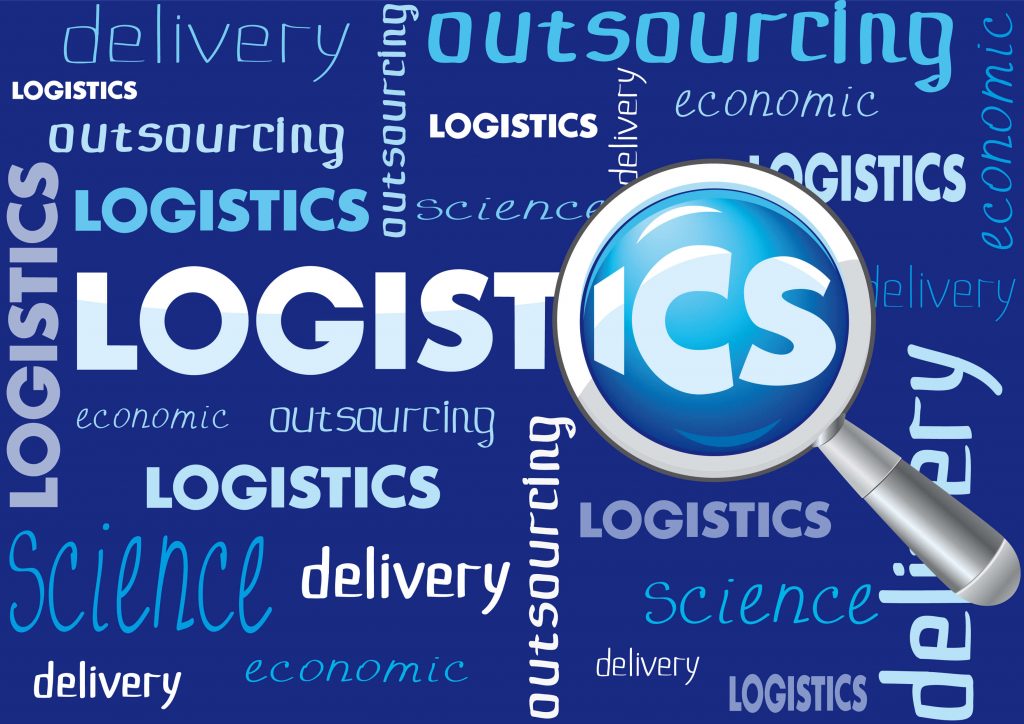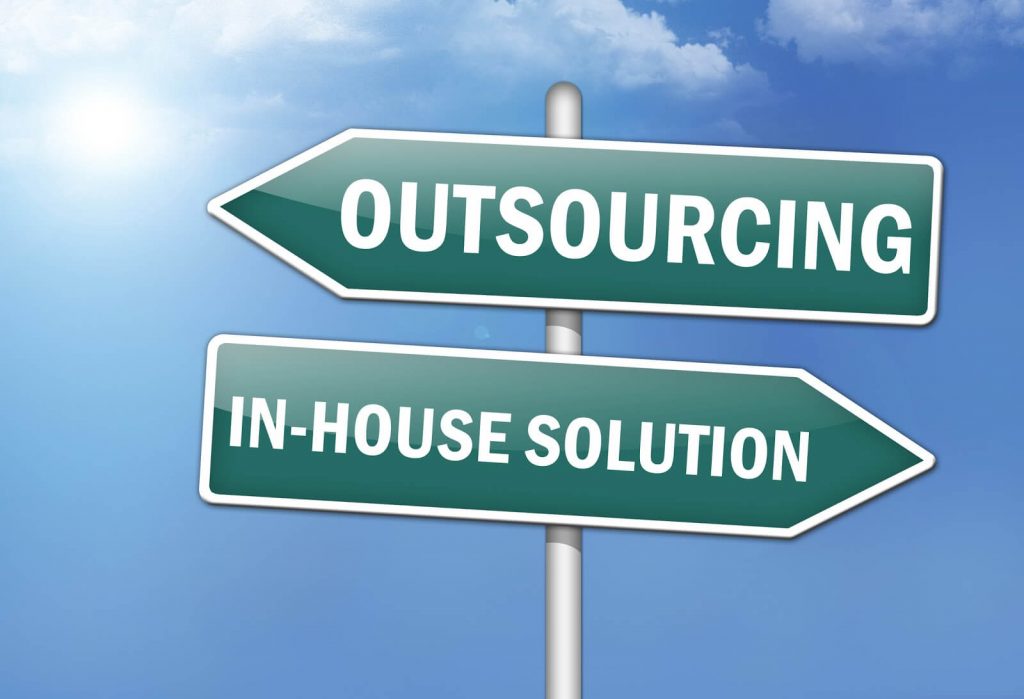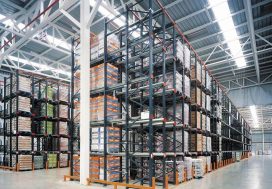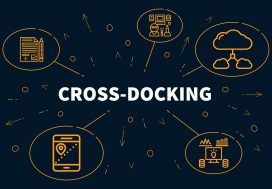
- What is contract logistics?
- Contract logistics benefits
- Which companies should pay attention to contract logistics services
- When using contract logistics services is disadvantageous
- Own warehouse or contract logistics: what to choose?
- Frequently asked questions about contract logistics
- Conclusions: contract logistics prospects in Ukraine
Business is always looking for solutions that facilitate cost optimization and increased efficiency. Logistics is one such element of each company’s operation. To maintain own warehouse or rent premises for storage, implement IT solutions, invest in car fleet, hire and train additional staff — all these are significant investments that not every business can afford. Moreover, in-house logistics requires expertise and knowledge of the latest innovations. If a company does not want to expand its staff and invest in logistics infrastructure, the solution may be to outsource logistics processes. This approach is also called contract logistics.
Effective outsourcing becomes an important competitive advantage. Using its experience, knowledge, and resources, a third-party company organizes customer’s logistics processes in the most efficient way. However, a business should consider all pros and cons before deciding on logistics outsourcing.
In this article, WareTeka explains what contract logistics is, which companies should outsource their logistics processes, and which should better build in-house logistics.
What is contract logistics?
Contract logistics (or third-party logistics) is the complete or partial transferring of material flow management and optimization to a third-party company. In simple words, it is logistics outsourcing. It includes a wide range of services: warehouse logistics, freight transport, customs clearance, freight forwarding, etc.
Logistics providers or 3PLs offer contract logistics services. A 3PL provider is a specialized company that comprehensively provides logistics services. It stores the freight, guarantees its safety, chooses the transport mode, develops optimal routes, provides additional services if necessary. To provide the full range of logistics services, a provider uses its infrastructure: warehouse or network of warehouses, equipment, car fleet, special equipment.

In addition to material resources, the logistics provider’s experience and skills are also important to develop an effective solution to a customer’s problems. Typically, the entire process of contract logistics includes such services as:
- Warehousing of goods, taking into account all their specificities, inventory management;
- Organization of the goods receiving in a 3PL warehouse, processing, and orders assembling, loading, and unloading operations;
- Goods transportation.
- Necessary accompanying and customs documentation preparation;
- Report on work performance, the control possibility thanks to providers software;
- Other additional services (packing, stickering, barcoding, and others).
Contract logistics closes an issue of customer’s supply chain management, so a business hasn’t need to invest in infrastructure and establish a logistics department. It only pays for the service or range of services it needs.
Contract logistics benefits
The main advantage of contract logistics is resource savings. They are not only financial investments, such as renting a warehouse, buying vehicles, hiring staff, but also time-saving. For example, it is possible to avoid long and expensive goods transport due to the location of a 3PL warehouse near an end consumer. But this is not the only advantage of using contract logistics. The main advantages are:
- An integrated approach to logistics. A provider controls all or most of the logistics processes, and can therefore arrange processes in such a way as to avoid long-term storage and downtime. As a result, the delivery speed to an end consumer is increasing.
- Possibility to scale. As a company outsources its logistics, it can focus on customer care improvement, sales, and marketing. There is no need to invest in infrastructure and pay the additional staff. A 3PL company will do all the works related to logistics.
- Customer care improvement. In addition to orders processing, many providers сan also manage the client relationship. This is a resource-consuming part of the business, so by outsourcing it, the business gets more time for its core activity and well-developed customer relations. Fast delivery, good customer communications, effective returns processing — all this has a positive impact on customer retention and is another contract logistics advantage.

- Focus on the company’s core activity. For a business for which logistics is not the main activity, organizing goods delivery, storage and transport can take a lot of time and resources. A company loses control over priorities. 3PL provider takes on all logistics issues, providing a business with a ready-made solution. Business deals with higher priorities such as promotion, expansion, market research, etc.
- Business process simplification. A logistics provider not only takes the goods from a warehouse, assembles orders, and sends them to customers, but also keeps inventory and can fulfill orders without business participation due to IT-system integration. A 3PL provider invests in its software so that it can solve storage and delivery issues effectively and a customer can control the processes remotely.
Which companies should pay attention to contract logistics services
This approach to transport and warehousing is particularly important for:
- Small and medium-sized businesses. Such companies are generally limited in resources, so it makes sense for them to delegate logistics to a third party to expand the sales market. In this way, they can focus on their main activity, promotion, and other priorities. However, when larger companies want to scale, they may need contract logistics too. This approach solves many bureaucratic issues, and a business does not need to control more employees and invest in additional logistics infrastructure.
- Large enterprises. Any business seeks opportunities to optimize costs and processes, and logistics outsourcing can be a solution. It enables to reduce the number of staff members and to decline warehouses and in-house logistics services if their cost is higher than the market average. Thus, contract logistics can save money and achieve maximum efficiency.
- Companies that want to enter the international market. It is not profitable to build their logistics abroad even for large businesses. Moreover, to arrange international traffic, companies need to transport goods to and from the border, arrange customs clearance of goods, storage in bonded warehouses and transshipment points, and delivery to the end consumer. A 3PL deals with all these issues competently and qualitatively.
When using contract logistics services is disadvantageous
Logistics outsourcing has many advantages, but it is not always suitable for some companies. If a business has well-developed in-house logistics that does not require complex operations, such as working with small and expensive product items, it does not need to apply 3PLs. Also for companies with low seasonal fluctuations and one sales channel, contract logistics is not beneficial. A business can invest in in-house logistics development if staff costs are stable, all the warehouse space is used and special software implementation is not needed.
Another important point when a business should prefer in-house logistics is the quality of services and in some cases their availability. Contract logistics in Ukraine is still developing and demand for outsourced logistics services exceeds supply. Therefore, a business that has decided to outsource its logistics sometimes has to use 3PL services that are not of good quality and do not satisfy its needs. To get quality logistics services, for example, cross-docking that meet all company’s requirements, a business should invest in its logistics department.
In-house logistics could close the issues of control and management. A company can control its employees and its warehouses are available 24 hours a day. At any time, a business can introduce changes in the supply chain. In the case of cooperation with a contractor, it has to warn about such changes in advance.
Own warehouse or contract logistics: what to choose?

It is considered that if a business deals with more than 50 orders a month, it can outsource its logistics. In case, you read the arguments for and against using contract logistics and think about whether to outsource your logistics processes, we recommend you explore the questionnaire below.
| “Yes” for contract logistics | “Not” for contract logistics |
| Increasing costs for warehouse staff maintenance | Staff costs are stable or decreasing |
| Significant seasonal fluctuations of product quantity | Low seasonal fluctuations of product quantity |
| Sales channels are changing | Permanent sales channel |
| The customer base is expanding | Stable customer base |
| Expected growth of product quantity | No future increase in the product quantity |
| Relatively high production unit cost | Low production unit cost |
| Need to upgrade warehouse operations | No need to upgrade logistics operations |
| The staff has to work excess hours to assemble orders | The staff do not need to work excess hours |
| Expensive delivery for the end consumer | Affordable delivery cost for the end consumer |
| Need to rent additional storage space | No need to rent additional storage space |
If most of the “yes” arguments are relevant to your business, then you should probably try contract logistics services. However, the logistics of each business implies a flexible approach, and there can be no right solution. Therefore, selecting a logistics company, you should consider offers from different service providers and choose one the most suitable for your business needs.
Frequently asked questions about contract logistics
In international terminology, PL means “party logistics”. The numbers from 1 to 5 that are put before this abbreviation denote the degree of involvement of a logistics company in a customer’s processes. 1PL is fully in-house logistics, and 2PL is partial outsourcing. The 3PL is a complete logistics outsourcing when a provider offers an integrated approach to a client’s logistics issues. 4PL and 5PL are also involved in logistics outsourcing, but they are less common in Ukraine, so all contract logistics companies are often called 3PL providers.
To get quality logistics services, it is necessary to choose the optimal 3PL provider. We recommend you to pay attention to such points as:
1. Positive feedback from 3PL’s clients;
2. Experience in the logistics market for more than two years;
3. Modern warehouses with all necessary equipment and advantageous location;
4. User-friendly software of a provider;
5. Punctual timing of orders;
6. Established returns processing;
7. Transparent price policy and fixed tariffs on services.
There are a lot of offers of 3PL services from different companies in the Ukrainian logistics market. On WareTeka, you can get acquainted with the base of 3PL providers, which professionally deal with contract logistics. You can also submit a request on the site for consultation and selection of the provider for your company’s needs.
Conclusions: contract logistics prospects in Ukraine
Whether or not to outsource logistics is up to each company to decide. On the one hand, contract logistics has many advantages. This is a ready-made solution for companies that have just started and do not have the resources to organize logistics. It also is beneficial for a business that wants to scale or solve the problem of a peak season overload. Some companies can use 3PL services instead of warehouse rental and hiring staff if it is more profitable.
But it is worth taking into account that in Ukraine logistics outsourcing is still developing. The number of logistics providers in Ukraine is much lower than the number of similar companies in Western Europe and the United States. But, the demand for 3PL services is increasing, so the number of service providers in Ukraine can increase soon too.
In addition, most Ukrainian 3PLs operate in Kyiv and Kyiv Oblast. To find a suitable option in other Ukrainian regions, it is necessary to select a provider responsibly. If a company does not want to waste time searching for a 3PL provider in Kyiv and other cities of the country, it can submit a request on our platform. WareTeka has a wide database of logistics providers and offers options for the specifics of a client’s business.




